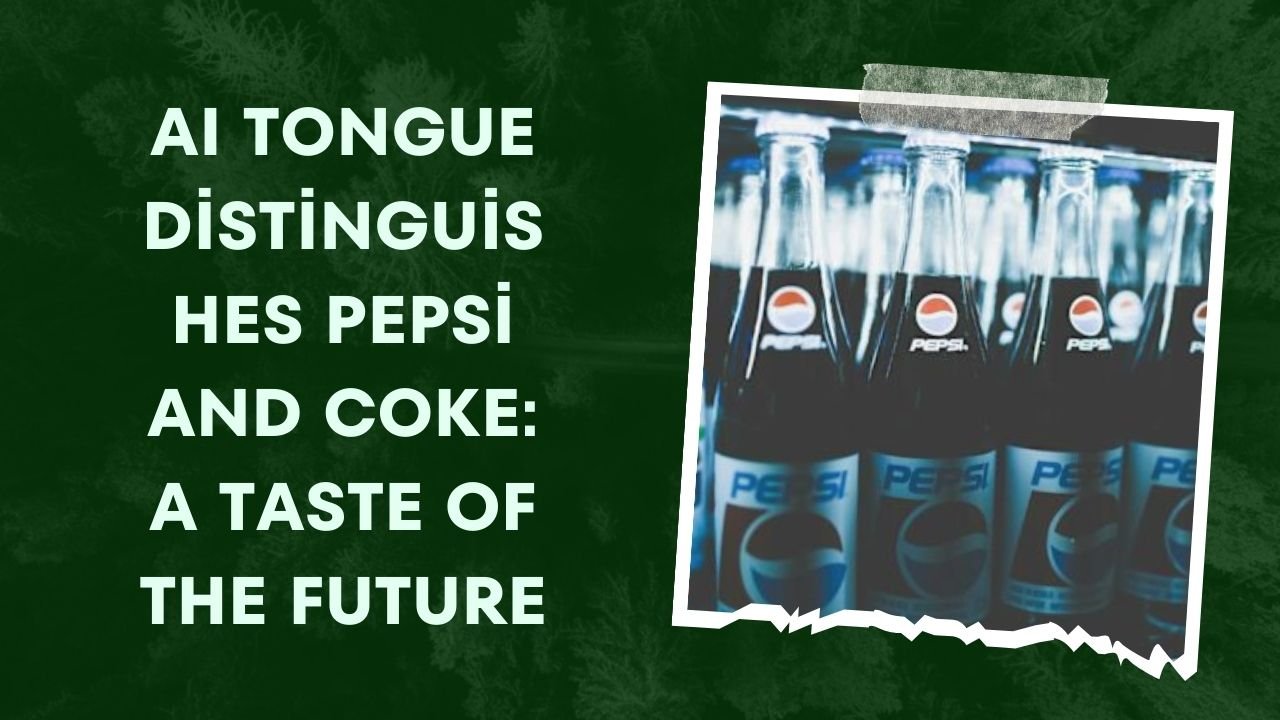Researchers have developed an artificial intelligence-powered electronic “tongue” capable of distinguishing between Pepsi and Coca-Cola with uncanny accuracy. This isn’t just about settling bar bets – it’s a leap forward in food safety and quality control that could revolutionize how we monitor and protect our food supply.
The Flavor of Innovation
Imagine a device that can taste your drink faster and more accurately than any human sommelier. That’s exactly what researchers at Penn State have created. This electronic tongue combines a graphene-based sensor with a neural network, creating a tasting system that’s both incredibly sensitive and remarkably intelligent.
“It’s like giving a supercomputer the ability to taste,” explains Dr. Lisha Zhao, lead researcher on the project. “But instead of taste buds, we’re using advanced materials science and artificial intelligence.”
More Than Just a Party Trick
While distinguishing between Pepsi and Coke might seem like a parlor game, the implications of this technology are far-reaching. The AI tongue can:
- Detect watered-down milk with over 80% accuracy
- Assess fruit juice freshness with 98-99% accuracy
- Identify various coffee blends
- Potentially detect harmful contaminants like PFAS (per- and polyfluoroalkyl substances)
All of this happens in about a minute, making it a game-changer for food safety and quality control.
How It Works: The Science Behind the Sip
At the heart of this electronic tongue is a graphene-based ion-sensitive field-effect transistor (ISFET). Graphene, a material known for its exceptional electrical conductivity and large surface area, acts as an incredibly sensitive detector for chemical changes in liquids.
When a liquid sample interacts with the graphene sensor, it creates measurable changes in electrical properties. These changes are then analyzed by an artificial neural network trained on vast datasets of various liquids. The AI interprets this data using 20 specific parameters, allowing it to identify and classify liquids with remarkable accuracy.
“It’s like teaching a computer to taste, but with infinitely more precision than a human tongue,” says Dr. Zhao.
Beyond the Cola Wars: Real-World Applications
While settling the Pepsi vs. Coke debate might grab headlines, the real impact of this technology lies in its potential to safeguard our food supply:
- Contaminant Detection: The AI tongue could quickly identify harmful substances in food and water, potentially preventing outbreaks of foodborne illness.
- Quality Control: Manufacturers could use this technology to ensure consistency in their products, from beverages to dairy.
- Freshness Monitoring: The ability to assess fruit juice freshness in real-time could revolutionize how we manage food storage and distribution.
- Fraud Prevention: The technology could help detect adulterated or counterfeit food products, protecting consumers and honest producers alike.
Industry Reactions: A Mix of Excitement and Caution
The food and beverage industry has responded to this development with a mixture of enthusiasm and measured caution.
“This could be a game-changer for quality control,” says Maria Rodriguez, VP of Operations at a major beverage company. “But we need to ensure it’s reliable across large-scale production before fully embracing it.”
Meanwhile, food safety advocates are hailing the technology as a potential breakthrough. “If this can detect contaminants quickly and accurately, it could save lives,” notes John Smith of the Consumer Safety Institute.
What’s Next: The Future of Flavor
As the technology continues to develop, researchers are already looking at expanding its capabilities. Future versions of the AI tongue might be able to:
- Detect allergens in food
- Identify spoilage in meat and fish
- Analyze the composition of complex mixtures
“We’re just scratching the surface of what’s possible,” Dr. Zhao enthuses. “The combination of advanced materials and AI opens up a world of possibilities in how we interact with and understand our food.”
A Taste of Things to Come
As we stand on the brink of this flavor revolution, one thing is clear: the way we think about taste, food safety, and quality control is about to change dramatically. From ensuring the Coke in your glass is really Coke to potentially saving lives by detecting contaminants, this AI-powered electronic tongue is giving us a tantalizing taste of the future.
So the next time you take a sip of your favorite soda, remember – in the near future, an AI might have tasted it first, ensuring it’s not just delicious, but safe and authentic too. Welcome to the future of flavor, where science and taste buds collide in the most delicious way possible.

